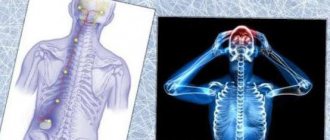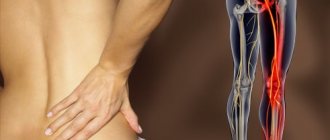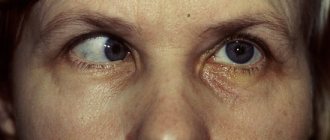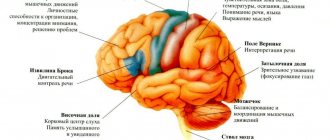Frontotemporal dementia (FTD) is a neurodegenerative pathology accompanied by progressive behavioral and personality disorders. If timely and correct treatment of frontotemporal dementia is not carried out, then over time the patient loses the ability to live a full life: especially to contact with society (total dementia). The development of the disease is mainly caused by degenerative frontal changes. Also changes in the anterior temporal lobes of the brain. Today, modern pharmacology has not yet created treatment protocols and medications that could completely cure a person suffering from FTD. However, doctors at our medical rehabilitation center individually select drug treatment that effectively inhibits the progression of severe symptoms.
In our clinic, medical specialists diagnose dementia using modern tests. To determine the spread of pathology, diagnostics are carried out using instrumental studies. All difficulties during therapy are discussed collectively, the medical staff is friendly, attentive, and professionally cares for patients undergoing inpatient treatment.
Symptoms
The frontal and temporal lobes have an important role in the human body. They are responsible for a person’s behavioral line and many other functions and qualities. The nature of the symptoms in any frontotemporal dementia depends on factors such as the stage of the disease and the characteristics of the patient’s body. The first symptom may be a change in taste preferences, for example, a patient who previously did not like sweets has become partial to them, or vice versa, to salty ones. Also, some kind of addiction, for example, alcohol, is often observed.
Any mental retardation has the following signs:
- Excessive excitability or absolute apathy to what is happening.
- Difficulties in communicating with society.
- Speech dysfunction.
- Inadequacy: reluctance to fulfill one’s obligations at work, incorrect communication, sudden temper. Some patients may experience a urge to steal (mainly as the disease progresses).
- Lack of emotional sensitivity. People with mental retardation do not have empathy, sympathy, and empathy in a difficult situation. They are completely apathetic.
- Unconscious duplication of the same thing.
- Sloppiness.
- Failure to comply with personal hygiene rules.
Also, lack of libido and sexuality in general, apathy towards intimate life.
Some specialists do not always make the correct diagnosis and mistake dementia for symptoms of Alzheimer's disease. As a result, incorrect therapy is prescribed. In our medical rehabilitation center, diagnostics are primarily carried out, which is carried out by experienced doctors who use modern European medical equipment. This eliminates the possibility of making an incorrect diagnosis.
Manifestation of dementia in children and during puberty
Frontotemporal dementia develops differently in adolescent children. The most basic sign is the moral and physical destruction of the formed mind. At an early age and puberty, the cause of the development of the disease is genetics and the presence of an infectious disease (perhaps the child has already had an infection). Dementia in adolescents often develops due to traumatic brain injury.
In adolescent children, the disease manifests itself with the following symptoms:
- Unstable emotional state.
- Fast fatiguability.
- Aggressiveness.
- Irritability, nervousness.
- Sudden mood swings.
- Inattention.
Due to dementia, it is difficult for adolescents to adapt to society, and it has a negative impact on their work life. Such patients quickly get tired and are unable to analyze what is happening well. If parents have noted at least one of the listed signs in their child, they urgently need to see a neurologist to clarify the problem, establish the causes of the development of the disease and make an accurate diagnosis. Also, the prescription of specific etiopathogenetic treatment of frontotemporal dementia.
Classification
In accordance with modern standards of psychotherapy, several forms of frontal dementia are distinguished:
- behavioral with a predominance of personality disorders (occurs most often);
- agrammatic (semantic);
- logopenic (however, according to some experts, this option is rather one of the atypical varieties of Alzheimer's disease).
Atrophy may affect the temporal, frontal, or frontotemporal regions of the brain. The location of the focus is another criterion for determining the form of the disease.
Is a complete cure possible?
Prognosis for frontal dementia directly depends on the progression - the speed of development of degeneration. In the early first and second stages of pathology, patients do not experience serious impairments or distress. That is why treatment should include complex therapy. If the personality degeneration is absolute, then the patient with dementia ceases to orientate normally in space. This makes it difficult for him to focus his attention on something, express his thoughts, or take care of himself. Therefore, the patient needs the help of experienced neurologists, family and friends. In the final stages, the disease actively progresses and muscle atrophy occurs. All this leads to inactivity and a sedentary lifestyle.
Unfortunately, against the background of late-stage dementia, secondary diseases often develop. Such patients can live quite a long time - 15 years and even longer with care and proper care. Of course, it is important how strong the body of a person with dementia is. Adequate therapy is also important. The specialists of our medical rehabilitation center select an individual treatment plan for each patient and use the latest therapy methods, thanks to which patients remain able to remain intellectually and physically active for as long as possible. They also extend the possibility of self-service.
Treatment in our private medical facility
Note that frontotemporal dementia, unlike other types of dementia, is an acquired dementia, the treatment of which is carried out at a high level in our Alzheimer's rehabilitation center. We offer therapy according to a scheme drawn up based on the results of a comprehensive diagnosis.
Treatment of dementia in our neurology clinic involves the use of the following main methods of therapy:
- Medicines.
- Exercise therapy.
- Psychotherapy aimed at restoring cognitive functions.
- Physiotherapy.
Patients who were lucky enough to undergo treatment in our medical center received not only high-quality medical care, but also daily care. Our doctors are experienced, and the medical staff treats every “guest” of the clinic with understanding. If your loved one suffers from dementia of any nature or degree, ensure that he receives the help of a good, best neurologist. We invite you to make an appointment with a medical specialist now if you want to help someone you care about.
Clinical picture
The disease begins between 45 and 70 years , there are no cases of frontotemporal dementia in adolescents (if similar symptoms are present in younger people, a more thorough diagnosis is required, since either hereditary mental illnesses or disorders due to organic brain damage are likely). Symptoms develop gradually.
In the early stages, personality changes predominate, the severity of which depends on the exact localization of the neurodegenerative process. With dementia of the frontal type, the following gradually develop:
- inactivity;
- lethargy;
- absence of external emotional manifestations;
- indifference to everything that happens around;
- reduction and simplification of mental activity,
- slowing, distortion of speech (up to loss of the ability to speak),
- lack of movement, recumbent lifestyle.
When the pathological process is localized in the orbital cortex, the following prevail in the clinical picture:
- loss of sense of tact and distance;
- loss of moral attitudes and principles;
- impulsiveness of actions;
- gross impairments of the cognitive spectrum (the ability to abstract thinking, planning, and performing multi-stage actions is lost), but at the same time memory and orientation in space and the environment are preserved.
Atrophy of the temporal lobes is accompanied by stereotypies - meaningless, illogical repetitions of phrases or individual words, movements, for example, stomping, clapping, rubbing the skin, scratching, pursing lips, smacking, etc. Sometimes obsessive counting appears: the patient constantly counts the number of steps, steps, etc. passed.
In addition, there is a clearly pathological tendency towards cleanliness, which sometimes takes the form of a phobia. Another form of stereotypy is the strictest adherence to an established daily routine, the change of which causes real panic in a person.
In addition, FTD is accompanied by:
- asthenic symptoms (weakness, fatigue, headaches, insomnia);
- movement disorders, muscle rigidity;
- formation of delusional ideas;
- speech disorders (and in 60% of patients they are noted at the initial stage of pathology).
One of the key symptoms is the early loss of the ability to understand and empathize with others' emotions. A person ceases to be interested in the feelings and experiences of those around him (including close people), he is indifferent to the grief of others, which is why the patient usually ends up in social isolation.
Changes in eating behavior are also characteristic. Frontotemporal dementia is typically characterized by an addiction to sweets, or to foods of a strictly specific color, shape, or with a specific smell. The feeling of satiety is lost. In later stages of FTD, the patient may strive to taste any objects, including those that are clearly inedible.
Diagnostics
Some symptoms of frontotemporal dementia (delusions, sexual disinhibition, etc.) are typical for other mental illnesses, in particular schizophrenia and Alzheimer's disease. Therefore, doctors at the Leto clinic adhere to the principles of step-by-step diagnosis, excluding all possible diagnoses.
The examination includes the following stages:
- Collection of family history (if necessary, we study outpatient records of the patient’s relatives who have been identified with mental disorders);
- Careful study of the clinical picture. The doctor asks loved ones in great detail about how the disease began, what signs appeared in the first place, how exactly the patient behaves, and how mental and behavioral disorders manifest themselves.
- Instrumental research. A brain tomography is required. CT, MRI and PET-CT (considered the most informative) clearly show signs of selective atrophy.
Treatment of frontotemporal dementia in honey
Therapy mainly comes down to the prescription of general strengthening drugs. These are multivitamin complexes, nootropics, means for normalizing metabolism, cardio- and neuroprotectors. However, the medications listed can only support the functioning of internal organs and systems, and, by and large, do not affect the symptoms of FTD.
The peculiarities of the clinical picture of the disease and the risk of rapid development of total dementia forces doctors to use all the medicinal resources of modern psychiatry and neurology. Thus, according to research, in frontotemporal dementia, drugs used to treat Alzheimer's disease (cholinesterase inhibitors and NDMA antagonists) have a good result.
To correct behavioral disorders the following is prescribed:
- antidepressants (preference is given to drugs from the group of selective serotonin reuptake inhibitors): indicated for anxiety, depression, obsessive disorders;
- neuroliptics and valproates: used for aggressiveness, psychomotor agitation.
Since patients quickly lose the ability to self-care and perform basic daily duties, we offer treatment in a hospital, where patients are provided with round-the-clock care and supervision by qualified medical personnel.
To make an appointment and additional consultation, call us by phone 8(969)060-93-93.









